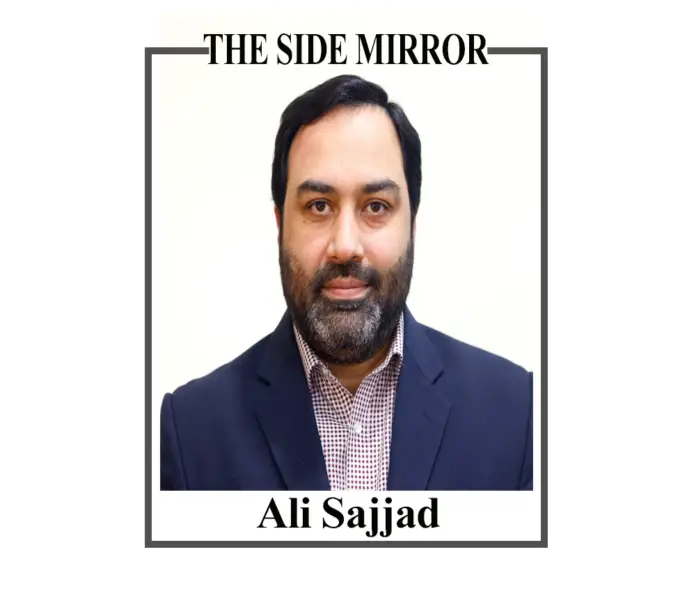In the past, post-election days were about the formation of the government. The parties would engage in making new alliances, which we fondly call jorr, torr ki siasat.
Right after elections, I had to return to London. I miss the whole government formation drama. Yes, this is a drama – full of theatrical performances, suspense and climax.
But this is not the scene at the moment. The whole political landscape is under the haze of rigging allegations. This is also not an unusual scene in Pakistan in post-election days. But this time, there have been many twist and turn in this context as well.
At the time of writing this piece, what is in the air is the revelations made by Rawalpindi Commissioner Liaquat Chattah, who said that the machinery under him rigged elections. He should have presented proofs. He must have proof as he spoke good nine days after the alleged crime occurred.
Before the commissioner, the media was following the statement of Karachi Jamaat-e-Islami emir Hafiz Naeemur Rehman who said that he was declared successful unfairly as the seat belonged to the independent candidate of the Pakistan Tehreek-i-Insaf.
Other than the domestic front, the recent elections have grabbed international attention as well. While the US welcomed the conduct of the elections, it demanded a full investigation into alleged rigging. Similar calls came from the United Kingdom and the European Union.
While all these developments make the election ‘dubious’, the Pakistan Muslim League-N (PML-N) is acting as an onlooker. It should come up with a clear strategy to counter the narratives. It should reach the media with a counter narrative.
I appreciate Caretaker Prime Minister Anwarul Haq Kakar who addressed concerns about alleged rigging in the recent general elections. He firmly denied any external influence, insisting the polls were conducted freely and fairly. His remarks come amidst international scrutiny and ongoing protests from certain political parties, notably the PTI.
Mr Kakar dismissed calls for investigation into rigging allegations, stating that friendly countries like the EU, UK, and US cannot dictate Pakistan’s internal affairs. He criticized their reliance on social media information, suggesting they investigate through their own channels if necessary. The prime minister had to do the job of the Foreign Office.
He highlighted the peaceful nature of the elections despite security challenges, calling it a “great success.” He argued that the delay in results, attributed to logistical challenges with collecting data from thousands of polling stations, does not imply rigging.
The prime minister spoke on the availability of broadband internet during the polls, enabling transparency. He acknowledged potential irregularities while dismissing claims of systemic rigging.
He compared Pakistan’s situation to social media-fueled controversies in developed countries like the US.
Mr Kakar downplayed concerns raised by the PTI, noting that even they were supported by a significant number of independent candidates. He emphasized the Election Commission’s role in addressing any irregularities through established channels.
Let us acknowledged that the mobile service shutdown contributed to the delay in results and suggested better coordination between the government and the Election Commission in the future.
While Kakar’s statements aim to quell concerns and project confidence in the election process, questions linger. The Election Commission itself acknowledged logistical challenges and incidents requiring resolution. The delay in results and communication gaps leave room for interpretation, fueling opposition concerns. Ultimately, public trust in the electoral system rests on addressing these concerns transparently and ensuring future elections are conducted smoothly and without suspicion.
Holding elections amidst terrorism threats is undeniably commendable. But celebrating complete success with ongoing suspicion of rigging creates a narrative dissonance. Addressing concerns and ensuring a transparent investigation are crucial to ensuring future electoral legitimacy.







